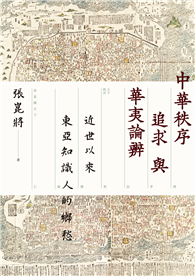Are human beings linked by a common nature, one that makes them see the world in the same moral way? Or are they fragmented by different cultural practices and values? These fundamental questions of our existence were debated in the Enlightenment by Locke, Shaftesbury, and Hutcheson. Daniel Carey provides an important new historical perspective on their discussion. At the same time, he explores the relationship between these founding arguments and contemporary disputes over cultural diversity and multiculturalism. Our own conflicting positions today reflect long-standing differences that emerged during the Enlightenment.
| FindBook |
有 1 項符合
Locke, Shaftesbury, And Hutcheson: Contesting Diversity In The Enlightenment And Beyond的圖書 |
 |
Locke, Shaftesbury, And Hutcheson: Contesting Diversity In The Enlightenment And Beyond 作者:Carey 出版社:Cambridge University Press 出版日期:2006-02-27 語言:英文 規格:精裝 / 260頁 / 23.4 x 16 x 2 cm / 普通級 |
| 圖書館借閱 |
| 國家圖書館 | 全國圖書書目資訊網 | 國立公共資訊圖書館 | 電子書服務平台 | MetaCat 跨館整合查詢 |
| 臺北市立圖書館 | 新北市立圖書館 | 基隆市公共圖書館 | 桃園市立圖書館 | 新竹縣公共圖書館 |
| 苗栗縣立圖書館 | 臺中市立圖書館 | 彰化縣公共圖書館 | 南投縣文化局 | 雲林縣公共圖書館 |
| 嘉義縣圖書館 | 臺南市立圖書館 | 高雄市立圖書館 | 屏東縣公共圖書館 | 宜蘭縣公共圖書館 |
| 花蓮縣文化局 | 臺東縣文化處 |
|
|
圖書介紹 - 資料來源:博客來 評分:
圖書名稱:Locke, Shaftesbury, And Hutcheson: Contesting Diversity In The Enlightenment And Beyond
|









